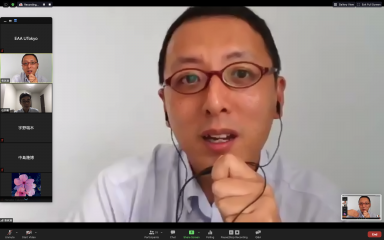
Chretien-Martin eschewed redistributive taxes. Trudeau has committed himself to a policy of deliberate deficits in an attempt to stimulate growth. Trudeau has vowed to cancel Harper’s F-35 jet contract and legalize marijuana.Ĭhretien-Martin balanced budgets. The turn to the left is as much cultural as economic. I write my own.”īut scripted and unscripted, Justin Trudeau has conveyed a consistent message: The government he leads will repudiate the legacy not only of the incumbent Conservative prime minister, Stephen Harper, but the neoliberal Liberals of the 1990s. NDP leader Tom Mulcair taunted Trudeau on this front: “You don’t like debates because your staff has to write all your lines for you. In unscripted remarks that have appalled critics and unnerved even some of his admirers, he praised China’s “basic dictatorship” for leading the way on combating climate change and derided Canada’s contribution to the anti-ISIS military campaign as “whipping out our CF-18s.” He was conspicuously absent from press briefings on his economic policy, explaining that he was vanishing from the campaign trail a month before election day to spend “quality time” with his family. He has styled himself as winsome where his father was chilly, as approachable where his father was aloof. Justin Trudeau has reshaped his father’s legacy. He resigned in 1984, just months before voters handed the Liberals the worst defeat in the party’s history. Cerebral, tough, and openly contemptuous of his intellectual inferiors-who numbered more or less the entire human race-Pierre Trudeau plunged Canada into ultra-statist experiments and massive debts from which his successors struggled for more than a decade to rescue her. His father, Pierre Trudeau, dominated Canadian politics from 1968 to 1984.

Trudeau bears the most famous name in Canadian politics, but a name loaded with multiple meanings for his party and his country. The young leader in turn made a desperate gamble of his own: to steer his centrist party hard left, mobilizing resentments and outflanking the NDP. Defeated and desperate, it turned to Justin Trudeau in 2013. In 2011, it finished third behind the avowedly socialist New Democratic Party (NDP). That Liberal Party lost power in 2006 and wandered deep into the political wilderness over the next decade. Canada attained a balanced budget in 1998 and recovered its triple-A bond rating in 2002.Īn Artificial Intelligence Developed Its Own Non-Human Language Adrienne LaFrance


It reneged on a promise to repeal a consumption tax on goods and services introduced by its Conservative predecessor. It steeply cut the top rate of corporate taxes, and hiked contributions to the federal pension plan. Under the double-headed leadership of Prime Minister Jean Chretien and Finance Minister Paul Martin, the Liberal government elected in 1993 cut federal spending to the lowest levels since the early 1950s. Of all the neoliberal parties during the Clinton-Blair 1990s, the Liberal Party of Canada qualified as the neo-liberaliest. Along with the surge of Bernie Sanders in the Democratic presidential primary in the United States and the nomination of Jeremy Corbyn as Labour leader in the United Kingdom, must now be reckoned Canada’s election of a Liberal government under Justin Trudeau. It’s another indicator of how Bill Clinton/Tony Blair-style liberalism is veering sharply to the left across the English-speaking world. Canada’s election on Monday was something much bigger than a local Canadian story.


 0 kommentar(er)
0 kommentar(er)
